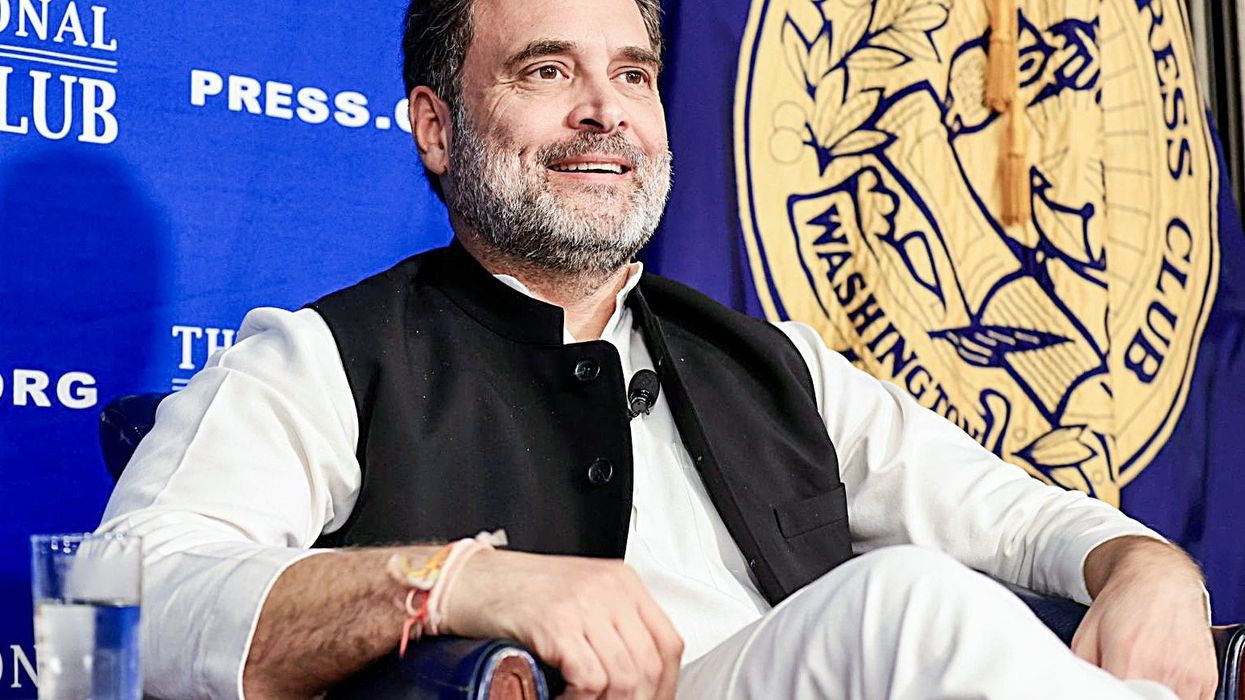INDIA's Congress party leader Rahul Gandhi has sharply criticised prime minister Narendra Modi's handling of the conflict with China, claiming that 4,000sqkm of Indian territory in Ladakh have been "occupied" by Chinese troops.
Speaking at a press conference at the National Press Club in Washington, Gandhi labelled the situation a "disaster" and argued that no leader should be seen as having managed such a situation well.
Gandhi compared the issue to how the US would respond if its territory were similarly occupied, questioning whether any American president could claim to have handled it well under such circumstances.
"I don't think Modi has handled China well. There’s no reason for Chinese troops to be sitting in our territory," he said.
Despite his strong criticism on China, Gandhi indicated that his Congress party is in broad agreement with the Modi-led government on other major foreign policy issues.
Rahul Gandhi holds meeting with US lawmakers in Washington DC. (ANI Photo)He expressed support for the government's stance of not engaging in talks with Pakistan unless terrorism from its side ceases. He also agreed with the government's concerns over extremist elements in Bangladesh, stating that it is crucial for the Bangladeshi government to address such issues promptly.
Regarding India-US relations, Gandhi noted continuity in the approach across political parties, recognising the relationship as key for both nations.
"I don’t see a significant diversion from our approach to the US. The relationship has bipartisan support in both countries," he said.
On internal affairs, Gandhi was clear that he does not want any role for the US in India’s domestic matters. "The fight for democracy in India is an Indian fight," he said. "Indian democracy is more than just any normal democracy because of its size. It is an asset not just for India, but for the rest of the world."
The leader of opposition in Indian parliament did not shy away from raising concerns about the state of democracy in India over the past decade, alleging that it has been "broken" but is now "fighting back."
He cited instances like the Maharashtra government being "taken away" from his party, Congress, through questionable means and discussed the challenges his party faced, including financial constraints during elections.
"We fought an election with our bank accounts frozen... Now, you can have a resilient voter. You still need to run campaigns," he noted. He also pointed to the legal challenges he faces, including being the only person in Indian history to receive a prison sentence for defamation, and criticised Modi’s approach to governance and his claims of having a "direct link to God."
Gandhi also touched upon the Israel-Palestine conflict, condemning both the Hamas attack on Israel on October 7 last year and Israel's subsequent actions that he said resulted in the killing of innocent civilians. "I'm against violence of any kind," he said, warning that the scale of violence could be detrimental to Israel itself.
His remarks came during an unofficial four-day trip to the US, where he met with lawmakers and discussed various geopolitical concerns.
(Agencies)





